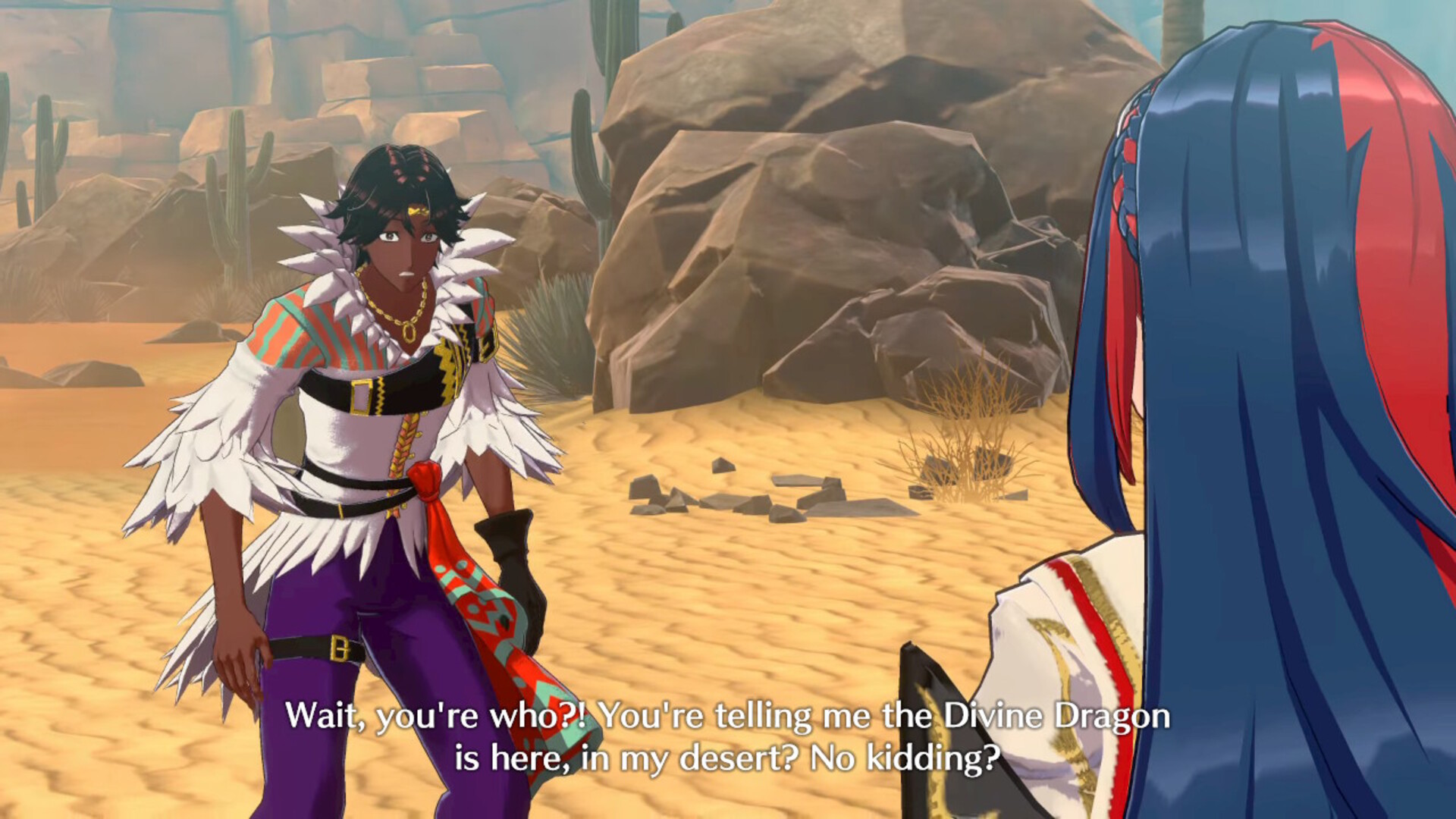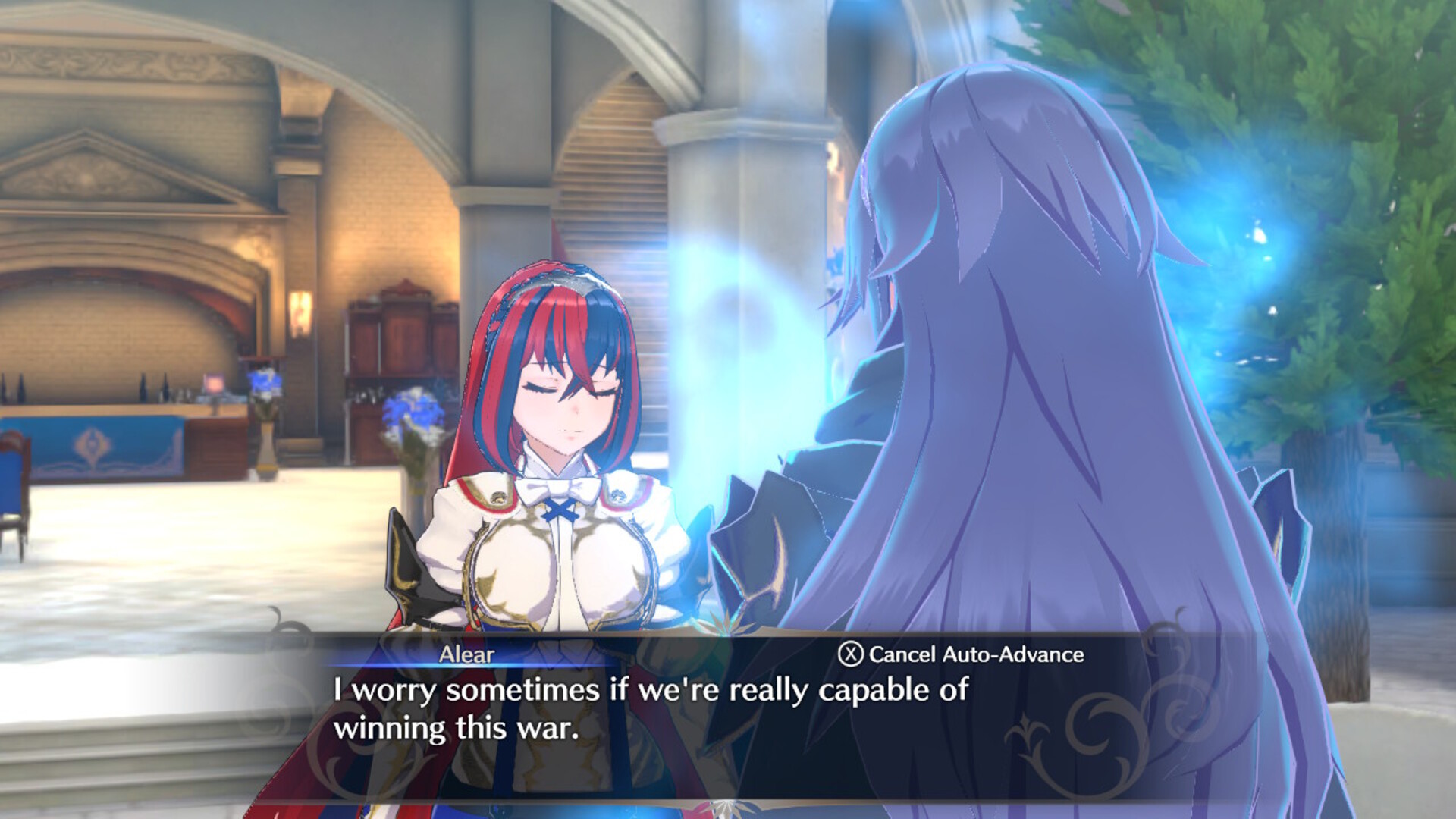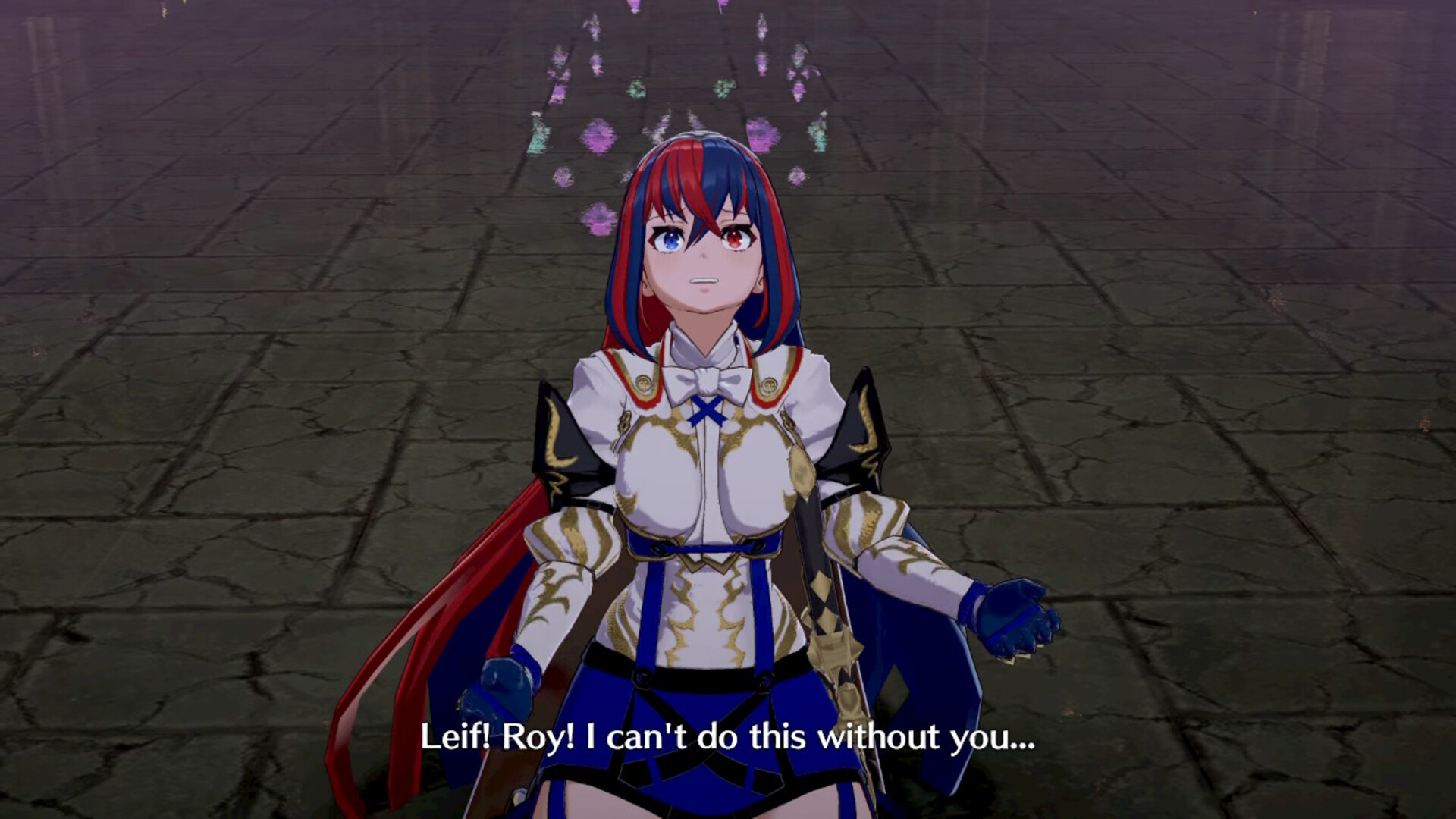An 11-year-old Cat Bussell has been dragged on a family holiday to Spain. Malaga’s sunny vistas and balmy heat are completely wasted on this pasty proto-nerd. She skulks in a darkened room as the struggling air conditioner barely keeps the excessive warmth of the “outdoors” at bay. The room is sticky and unpleasant, but it doesn’t matter because young Cat has Fire Emblem on the Game Boy Advance, and that makes everything alright.
The subtle alchemy of Fire Emblem Engage’s encounters take me back to these Malaga days in a big way. The latest Fire Emblem offers a turn-based combat experience that kept me playing until the early hours of the morning. Developer Intelligent Systems has not only returned to the fundamentals of its combat system, but has improved upon it, iterating on certain features to add extra levels of decision-making and customization.
In Fire Emblem, you command an army of anime soldiers in turn-based battles that take place on XCOM-like grids. Bookending these encounters are melodramatic – but usually fun – anime cutscenes that advance the story. In more recent Fire Emblems, including Engage, you take on the role of a blank-slate self-insert character who hangs out with the game’s characters between battles. It’s a simple, but satisfying formula.
On the grid

Fire Emblem’s battles have never looked or felt better. Gorgeous attack animations and delicious sound design are the order of the day. As for the fighting itself, Engage’s combat has a unique and satisfying cadence that surpasses the classic Fire Emblem games and moves Intelligent System’s newest title into a league of its own.
Every difficult choice you make in battle creates invites dozens more decisions down the line. Do you push forward with your glass cannon mage to take out a heavily armored knight? How do you minimize the risk to your fragile magic user if you do? Do you attempt to place a cavalry unit in the way, or do you have a monk obstruct a portion of the battlefield with a staff? Engage’s combat is bursting with questions, and it’s up to you to answer them.
Engage’s combat is bursting with questions, and it’s up to you to answer them
Fire Emblem Engage is full of innovations on the series’ old mechanics. Take counterattacks, for example. Traditionally in Fire Emblem, if you hit an enemy and don’t kill them, they will automatically strike you back – a debilitating and sometimes deadly threat to consider in every assault. Fire Emblem Engage offers you a way to circumvent the threat using the new ‘break’ condition. Hit an enemy with a weapon they’re vulnerable to, and you’ll knock them off guard. Inflict ‘break’ on the nasty boss who has a weakness to axes, and suddenly your fragile units can get up close and deal serious damage without fear of reprisal.
A new feature entirely is Emblem Rings, and they’re an essential tool. Give one of these rings to a soldier in your army, and it will let them use the power of a hero from Fire Emblems’ past. This gives them access to new traits they can eventually learn for themselves and lets them fuse with the ghost in question, briefly making them into an empowered super-unit. It adds a welcome extra layer of spice to an already sophisticated tactical hotpot.
Unsupporting cast

In Fire Emblem Engage, you spend your time between battles at the Somniel, a floating fortress island in the middle of the continent. Here you can gather items, cook meals, manage your soldiers and even engage in multiplayer battles. However, the extent to which you can use this time to bond with the supporting cast is surprisingly limited.
Unfortunately, for Fire Emblem Engage, it comes hot on the heels of Fire Emblem Three Houses. Released in 2019, Three Houses was a bold departure from the series’ norms and had you take on the role of a professor at a military academy. It allowed you to connect more intimately with the game’s ensemble cast – spending time with them one-on-one, helping them make decisions in their lives, and exploring their backstories and motivations in richly written dialogues. Engage does not follow in Three Houses’ footsteps. Instead, it offers a far more linear experience with less emphasis on character relationships.
Much to my disappointment, you cannot get engaged in Fire Emblem Engage
Engage still uses the support system, allowing you to unlock conversations between yourself and your allies should you spend time fighting alongside them or giving them gifts. However, these conversations are, for the most part, disconnected from the wider plot. Though some are emotionally resonant, they’re the exception. In addition, Engage’s support conversations cap at ‘A’ rank rather than the usual “S” rank. Not only does this mean fewer conversations, but it also means that romance options are off the table. Much to my disappointment, you cannot get engaged in Fire Emblem Engage.
School’s out

In contrast to the relatively empty feeling fortress Somniel, Three Houses’ monastery seemed to bustle with life and provided a backdrop for the characters’ social interactions and development. The overarching geopolitical events of Three Houses also provided an anchor which gave the origins and struggles of its ensemble cast some much-needed context. With the outbreak of war in the game’s second act, many of the bosses weren’t faceless goons, but former students who chose the opposing side in the conflict.
Engage often seems bereft of this emotional weight. The story feels cursory and does little to invest you in the central characters. An evil dragon is waking up and you have to defeat him. That’s it. That’s the plot. Though I did become attached to some of my soldiers during my playthrough, it was because of their performance in battle and fear of losing them, rather than any sincere love of their characters.
Fire Emblem Engage offers a meticulously crafted tactical combat experience that satisfies and delights me, but, the world in which Engage’s battles take place is bland and unappealing by comparison. Chock full of one-note characters that don’t do justice to the ambitious and well-constructed battle system, I would love to see all of Fire Emblem Engage’s clever innovations married to the leap forward in storytelling we saw in Three Houses.




